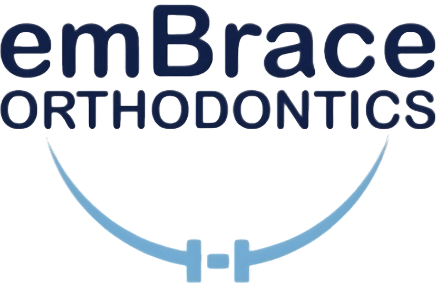Jaw surgery often gets mistaken as a purely cosmetic procedure, but its impact extends far beyond aesthetics. From improving breathing and digestion to reducing chronic pain, the jaw surgery health benefits are significant. Understanding these advantages reveals why this procedure is more than a boost in confidence—it’s an investment in long-term health and well-being.
What Is Jaw Surgery?

Jaw surgery corrects abnormalities in jaw alignment and structure. These issues often stem from genetics, trauma, or developmental problems. The procedure realigns the upper and lower jaws, ensuring proper function and enhancing facial balance. While it’s true that patients often notice a positive change in their appearance, the health advantages of the surgery deserve equal attention.
Correcting Bite Problems for Better Functionality
Misaligned jaws frequently cause bite problems, such as underbites, overbites, and open bites. These issues make chewing difficult and can lead to uneven wear on teeth. Jaw surgery corrects these alignment issues, ensuring the upper and lower teeth meet properly.
Benefits of Proper Bite Alignment
- Improved chewing efficiency reduces strain on the jaw muscles.
- Prevention of premature wear and tear on teeth.
- Lower risk of developing temporomandibular joint (TMJ) disorders.
Chewing becomes smoother and less painful, which significantly enhances daily life.
Relieving TMJ Disorders
Temporomandibular joint (TMJ) disorders cause jaw pain, clicking, and difficulty moving the jaw. These issues result from improper jaw alignment or stress on the joint. Jaw surgery corrects structural issues, alleviating these symptoms.
Patients often experience:
- Reduced jaw pain and discomfort.
- Fewer headaches caused by TMJ tension.
- Improved range of motion in jaw movements.
These changes contribute to long-term comfort and functionality, helping people return to their regular routines without persistent pain.
Enhancing Breathing and Sleep Quality

Improper jaw alignment can obstruct airways, leading to breathing problems during sleep. Conditions like obstructive sleep apnoea (OSA) often stem from structural issues in the jaw. Jaw surgery repositions the jaw, opening airways and allowing for unobstructed breathing.
Benefits of Improved Breathing
- Reduced snoring improves the sleep environment for everyone in the household.
- Better oxygen flow during sleep promotes energy and overall health.
- Lower risk of developing health conditions linked to poor sleep, such as heart disease.
Patients with sleep apnoea often find this change life-changing, as they can finally rest properly without interruptions.
Speech Improvements
Jaw misalignment often affects speech. Misaligned teeth and jaws can cause lisps or difficulty pronouncing certain sounds. After jaw surgery, patients frequently notice improvements in their speech. This change boosts confidence and allows them to communicate more effectively.
Improved speech also reduces strain on the tongue and facial muscles, leading to easier and more natural communication.
Preventing Digestive Problems
Improper chewing caused by jaw misalignment makes it harder to break down food before swallowing. This puts additional strain on the digestive system. By correcting the alignment, jaw surgery ensures efficient chewing, making digestion smoother and reducing issues like bloating and indigestion.
Efficient digestion promotes better nutrient absorption, contributing to overall health and wellness.
Boosting Mental and Emotional Well-being
Living with jaw pain, discomfort, or breathing issues takes a toll on mental health. Patients often feel self-conscious about their appearance or frustrated with daily challenges. Jaw surgery addresses these problems, offering a sense of relief and renewal.
Patients commonly report:
- Increased self-esteem due to improved function and appearance.
- Relief from chronic pain that previously dominated their lives.
- A more positive outlook as daily activities become easier and more enjoyable.
While the aesthetic changes may boost confidence, the improvements in health often have a more profound and lasting effect on mental well-being.
Protecting Dental Health

Misaligned jaws create conditions that increase the risk of dental problems. Uneven pressure on teeth may cause them to crack or wear down prematurely. Jaw surgery balances the bite, distributing pressure evenly across all teeth.
This balance reduces the likelihood of:
- Tooth fractures or chips.
- Gum disease caused by improper cleaning of misaligned teeth.
- Tooth loss resulting from excessive wear.
Better jaw alignment simplifies oral hygiene routines, making it easier to maintain healthy teeth and gums.
Supporting Long-term Health
Jaw surgery provides lasting benefits that extend beyond immediate relief. Patients who undergo the procedure often experience fewer complications as they age. Proper jaw alignment reduces wear on joints, teeth, and surrounding muscles, promoting better health over time.
Is Jaw Surgery Right for You?
Determining if jaw surgery is necessary involves consulting an orthodontist or oral surgeon. They assess your jaw alignment, bite, and overall health to determine the best course of action. Early intervention often prevents further complications and reduces the need for extensive treatments later.
Conclusion
Jaw surgery offers more than aesthetic benefits. It improves function, enhances health, and relieves chronic pain. From better breathing to increased confidence, the impact of jaw surgery touches nearly every aspect of life. Consulting a specialist is the first step toward understanding how this procedure can transform your health and well-being.

